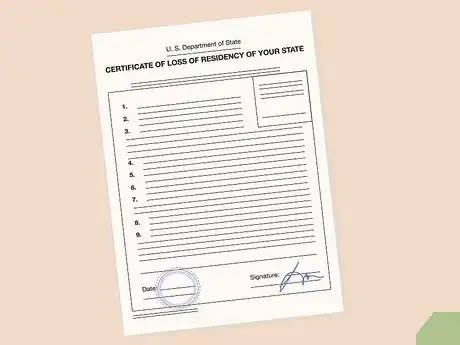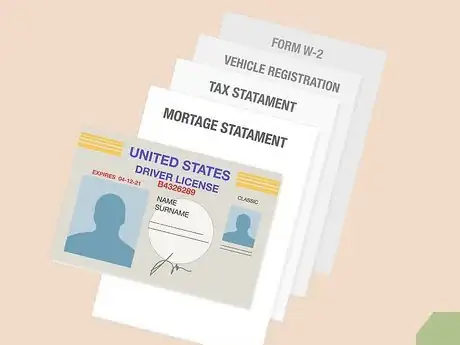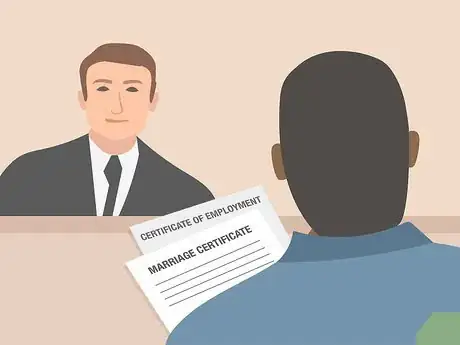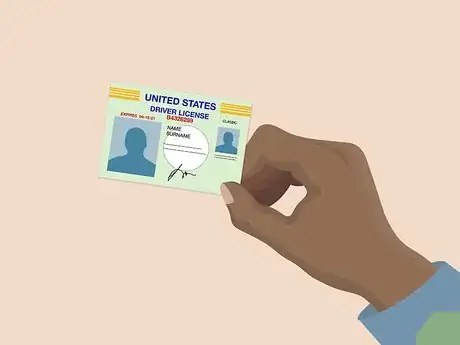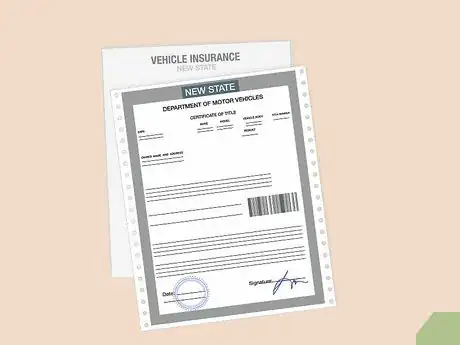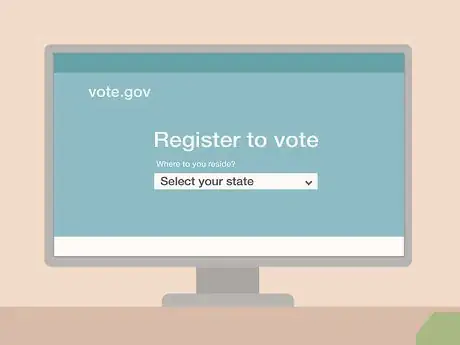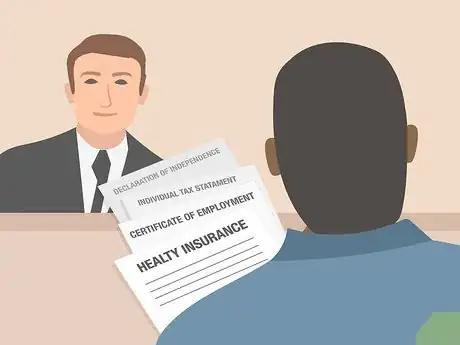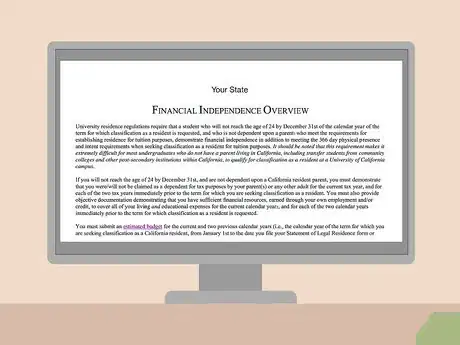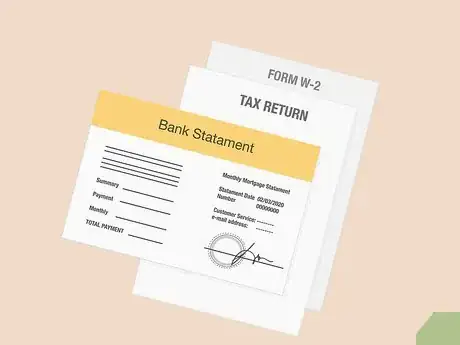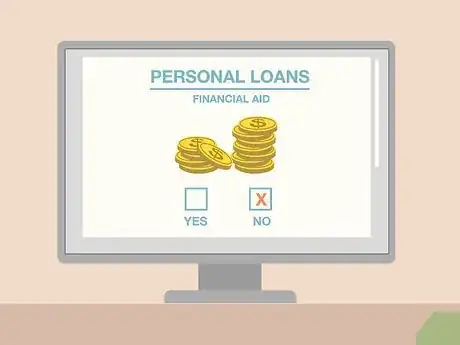This article was written by Jennifer Mueller, JD. Jennifer Mueller is an in-house legal expert at wikiHow. Jennifer reviews, fact-checks, and evaluates wikiHow's legal content to ensure thoroughness and accuracy. She received her JD from Indiana University Maurer School of Law in 2006.
This article has been viewed 17,266 times.
Attending an American college or university can be a significant expense. However, you can save some money on tuition if you go to a public school in the state where you live. Establish residency by maintaining a physical presence in the state for at least a year, demonstrating that you intend to live in that state indefinitely, and proving that you are financially independent of your parents or legal guardians (if they live in a different state). You must be able to prove each of these things when you claim in-state residency status with your school's admissions department.[1]
Steps
Having a Physical Presence in the State
-
1Determine how long you need to live in the state before you can claim in-state residency. In most states, you must live in the state continuously for at least a year before you can claim residency for in-state tuition purposes. Some states, including California and Arizona, require you to live there for at least 2 years.[2]
- In some states, you cannot attend school while you're establishing residency or you will be considered an out-of-state student. In others, you can go ahead and start school, but you will have to overcome a presumption that you moved there just to attend school.
-
2Relinquish legal ties to your previous state of residence. If you still have legal ties to another state, the school may determine that you haven't established a physical presence, even if you've lived there for a year or more. Relinquishing legal ties might include:[3]
- Surrendering your driver's license;
- Cancelling your car's registration;
- Transferring ownership of property in the other state; or
- Not paying income taxes in your old state.
Advertisement -
3Gather documents to prove your legal ties to your new state. When you claim in-state residency with the admissions office of your school, you need official documents that show you don't have any remaining legal ties to your old state. These documents must date back to the full required period of residency. Documents that can prove your physical presence in the state include:[4]
- State tax returns;
- A state driver's license or ID card;
- Leases or mortgage statements for the residency period;
- W-2 forms showing in-state employment; and
- State vehicle registration.
Tip: Most schools require you to provide at least 2 official documents that prove your legal ties to the state to prove your physical presence in the state.
-
4Stay in the state during non-academic periods if you're attending school. A few states, including California, allow you to establish residency for the purposes of in-state tuition while attending school, provided you meet other requirements. However, you must remain in the state when school is not in session.[5]
- The typical student would likely leave the state during winter and summer breaks. If you're trying to maintain a physical presence in the state, you should generally avoid leaving the state for more than a month over the course of a year.
- If you have to leave the state for a serious reason, such as to care for an ailing relative, you may still be able to prove your physical presence if you maintained a residence in the state while you were gone.
-
5Overcome the presumption that you moved to attend school. Even if you've lived in the state for a year, you may face an additional hurdle to establishing residency. In many states, if you start attending school immediately after moving to the state, the school will presume that you moved there to attend school. You must provide specific documentation to prove this isn't true.[6]
- For example, suppose you are married and you and your spouse moved to the new state because your spouse had a job offer there. You transferred to a school in that state to complete your degree. You would likely overcome the presumption that you moved to that state solely to attend school.
Proving Your Intent to Stay
-
1Get a job in the state and pay state income taxes. As soon as possible after you move to the state, find a job and start paying state income taxes, if applicable. Maintaining employment and paying state income taxes is the biggest way to establish residency. It not only demonstrates your intent to stay in the state, but also can help you show your financial independence, if it proves necessary for you to do so.[7]
- If the state has state income tax, those taxes will typically be withheld from your paycheck automatically, provided you give your employer an in-state address.
-
2Get a driver's license or state ID card in your new state. When you move to a new state, state law requires you to get a driver's license soon after you move. In some states, such as California, you have as few as 10 days to get a driver's license or state ID. Other states may give you as long as 30 days.[8]
- If you delay getting a driver's license, your residency may not be considered to start until the date you get your driver's license.
-
3Transfer your car's registration and insurance to your new state. If you own a vehicle and intend to establish residency in the state, you must transfer your registration to the new state soon after you move. Most states allow less than 30 days after you've settled in the state. When you transfer your registration, you'll also need to update your insurance.[9]
- If you were carrying state-minimum insurance coverage in your old state, make sure you update your policy to account for any differences in your new state.
- Keep records of the date you transfer your registration and insurance. You can use them to support your claim that you are an in-state resident.
-
4Register to vote in your new state. When you register to vote in your new state, you demonstrate that you intend to stay there and are interested in being an active and informed part of the community. Registering to vote also gives you the power to vote for state and local elected offices.[10]
- Since you can only be registered to vote in one state, when you register to vote in your new state, your registration in your old state will be canceled.
- Show the school your voter registration card as proof. You don't have to prove that you voted in any particular elections.
Tip: You can register to vote at the same time you get your driver's license or state ID in your new state.
-
5Maintain bank accounts within the state. If you have a bank account with an out-of-state bank, close it and open a new account in your new state. If you have an account at a bank that has branches in both your new state and your previous state, update your address.[11]
- Direct deposit and online banking can make it so that you never step foot in a physical bank branch. However, it's still a good idea to make sure there's a branch of your bank that is reasonably convenient to where you live and work. Keep in mind that the people reviewing your application for in-state residency status will be older and may not be as familiar with online banking options.
Demonstrating Financial Independence
-
1Show that you are not dependent on your parents. If you are under the age of 24 and your parents live in a different state, you have to be able to prove that you aren't dependent on them in any way for your support. Typically, you must also be able to prove that your parents are no longer claiming you as a dependent on their taxes.[12]
- Generally, you are considered a dependent if your parents or legal guardians provide at least 50 percent of your financial support. Even if you have your own place, this would include things like paying your rent or other bills.
- You won't be considered a dependent if you are still on your parent's health insurance, provided they provide little other financial support.
Tip: If you are under 24 and dependent on your parents, or if your parents claim you as a dependent on their taxes, you are automatically a resident of the state where your parents live.
-
2Review the exceptions for demonstrating financial independence. If you're over the age of 24, you typically don't have to prove your financial independence. However, some students under the age of 24 are also exempted from proving financial independence. There are exceptions if you:[13]
- Are a veteran of the U.S. Armed Forces;
- Are married; or
- Have legal dependents yourself, such as children.
- You also don't have to prove you aren't a dependent if both of your parents are deceased or if you're a ward of the court.
-
3Gather documents to prove you pay your own bills. If you have to prove financial independence to claim residency in a state, you'll need official documents that show your income and ability to pay your own bills. Acceptable documents include:[14]
- Tax returns;
- Bank statements; or
- W-2 forms.
Tip: Many states only require you to show financial independence for 1 year. A few states, such as California, require you to prove 2 years of financial independence before you enroll in school.
-
4
Warnings
- Non-U.S. citizens typically aren't eligible for in-state residency unless they are lawful permanent residents with green cards.[17]⧼thumbs_response⧽
- Owning real estate in the state is typically not sufficient, by itself, to prove your physical presence in the state or your intent to stay there indefinitely.[18]⧼thumbs_response⧽
References
- ↑ https://www.nerdwallet.com/blog/loans/student-loans/in-state-tuition-establish-residency/
- ↑ http://www.finaid.org/otheraid/stateresidency.phtml
- ↑ https://www.ucop.edu/residency/establishing-residency.html
- ↑ https://onestop.fiu.edu/student-records-myfiu/personal-records/declare-residency/
- ↑ https://www.ucop.edu/residency/establishing-residency.html
- ↑ https://www.admissions.uga.edu/georgia-residency
- ↑ https://www.ucop.edu/residency/establishing-residency.html
- ↑ https://www.ucop.edu/residency/establishing-residency.html
- ↑ https://www.ucop.edu/residency/establishing-residency.html
- ↑ https://www.nerdwallet.com/blog/loans/student-loans/in-state-tuition-establish-residency/
- ↑ https://www.ucop.edu/residency/establishing-residency.html
- ↑ https://onestop.fiu.edu/student-records-myfiu/personal-records/declare-residency/
- ↑ https://www.ucop.edu/residency/establishing-residency.html
- ↑ https://www.ucop.edu/residency/establishing-residency.html
- ↑ https://www.nerdwallet.com/blog/loans/student-loans/in-state-tuition-establish-residency/
- ↑ https://www.ucop.edu/residency/establishing-residency.html
- ↑ https://www.admissions.uga.edu/georgia-residency
- ↑ https://www.admissions.uga.edu/georgia-residency

